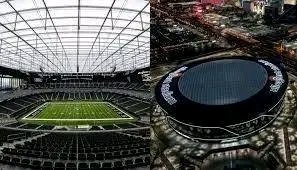
Newcastle United Announces $850 Million Stadium Project in Landmark Move
In a transformative development for English football, Newcastle United has officially unveiled plans for a state-of-the-art stadium project valued at an estimated $850 million. The ambitious initiative marks a bold new chapter for the historic club and represents one of the largest infrastructure investments in Premier League history.
Announced earlier today, the project includes a brand-new, ultra-modern stadium with a projected capacity exceeding 65,000 seats, designed to meet UEFA’s elite stadium standards. The new ground is expected to replace or expand upon the club’s iconic St James’ Park, though final decisions on the exact site and design are still being finalized. Club officials emphasized their commitment to preserving Newcastle’s rich heritage while positioning the club for long-term growth on both domestic and European fronts.
The project is set to feature cutting-edge amenities, improved fan experiences, and sustainable design elements, including renewable energy integration and environmentally responsible construction. In addition to serving as Newcastle United’s new home, the stadium is envisioned as a year-round venue for concerts, events, and community engagement, delivering significant economic benefits to the region.
Backed by the club’s ownership group, led by Saudi Arabia’s Public Investment Fund, the investment underscores their long-term vision and ambition for the Magpies. Newcastle CEO Darren Eales described the project as a “monumental step forward,” adding that it reflects the club’s growing stature and international aspirations.
Construction is expected to begin within the next two years, pending final planning approvals and community consultation. The announcement has generated excitement among supporters and football pundits alike, with many seeing it as a symbol of Newcastle’s emergence as a new powerhouse in English football.
This landmark move is set to redefine not just Newcastle’s future—but the landscape of Premier League football itself.
Leave a Reply